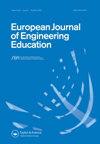新冠肺炎与学生压力:理工科本科生应对压力课程的效果
IF 2.8
Q2 EDUCATION & EDUCATIONAL RESEARCH
引用次数: 0
摘要
全球大学生中抑郁、焦虑和压力的患病率很高。在大多数情况下,压力干预是基于个人的,涉及相对较短时间的小团体。新的证据表明,在2019冠状病毒病大流行(2020-2021年)期间,学习转向在线形式,全球范围内强制保持社交距离,压力有所增加。我们的研究集中在一门关于如何适应压力环境的课程上,这门课程在多年的课堂教学之后搬到了网上。基于定性和定量分析,我们表明该课程为学生提供了两个主要好处。首先,课程结构被设计成一种仪式,为学生提供一种控制感。其次,学生们参与了一个小组活动,进一步提高了他们适应压力情况的能力,因为它创造了一个分享的平台。研究结果在持续大流行的背景下进行了讨论,并提出了应对COVID-19后学生压力的建议。本文章由计算机程序翻译,如有差异,请以英文原文为准。
COVID-19 and student stress: the effectiveness of a course on coping with stress for science and engineering undergraduate students
ABSTRACT Prevalence of depression, anxiety, and stress among university students worldwide is high. In most cases, stress intervention is individual-based and involves small groups for relatively short periods. New evidence shows that stress increased during the COVID-19 pandemic (2020-2021), when learning moved to online formats and social distancing was enforced worldwide. Our research focuses on a course on adjusting to stressful situations that moved online after many years of being taught in class. Based on qualitative and quantitative analyses, we showed that the course offered students two main benefits. First, the course structure was designed as a ritual, providing students with a sense of control. Second, students were engaged in a group activity, further contributing to their ability to adjust to stressful situations, as it created a platform for sharing. Findings are discussed in the context of the ongoing pandemic, and implications for coping with student stress post COVID-19 are suggested.
求助全文
通过发布文献求助,成功后即可免费获取论文全文。
去求助
来源期刊

European Journal of Engineering Education
EDUCATION & EDUCATIONAL RESEARCH-
CiteScore
7.30
自引率
13.00%
发文量
64
期刊介绍:
European Journal of Engineering Education is published six times a year in print and electronic editions and provides an essential forum for dialogue between researchers and specialists in the field of engineering education, at European and worldwide levels. European Journal of Engineering Education is the Official Journal of SEFI, the Socièté Européenne pour la Formation des Ingénieurs (the European Society for Engineering Education). SEFI is a non-governmental organization whose aims are to develop information about engineering education, to improve communication and exchange between professors, researchers and students and to promote cooperation between the various institutions concerned with engineering education.
 求助内容:
求助内容: 应助结果提醒方式:
应助结果提醒方式:


